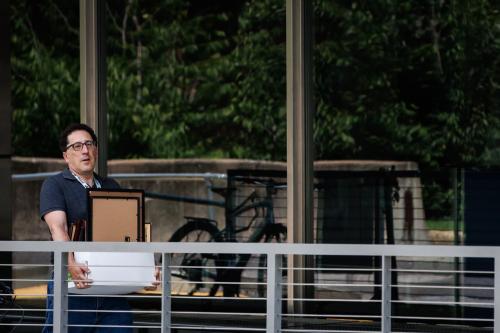Many opponents of health-care reform have concentrated their fire on a provision in House legislation that would provide for government reimbursement to doctors who offer end-of-life counseling. How our society deals with those confronting death is understandably controversial. Unfortunately, the debate has degenerated into a cacophony of demagoguery and distortion, including invocations of Hitler and fear-mongering about “death panels.” As a result of these attacks, a number of senators who are key to determining what bill will emerge from Congress have abandoned support for end-of-life counseling.
Our family’s experience this year provided a vivid perspective on the value of that service and the misguidedness of the campaign against it. Brooke Shearer — wife, mother and grandmother — had been fighting cancer for more than a year. She had undergone major surgery, numerous scans and biopsies, and two debilitating courses of chemotherapy. Her doctors were among the best in their fields. Their expertise did not, however, extend to the fine points of, and latest advances in, pain management.
Brooke was determined to maintain the highest possible quality of her own life and that of her family for whatever time we had together. With that goal in mind, she sought advice and treatment from palliative-care specialists at Washington Home and Community Hospices. Their ingenuity and skill in adjusting her medications significantly alleviated her discomfort in her final months. Working closely with her primary physicians, the hospice staff helped Brooke anticipate the likely course of her disease in a way that allowed her to make decisions and exercise a degree of control over both her own condition and our family’s adjustment to it.
When her oncologist concluded that chemotherapy was not working, Brooke put herself fully into the hands of Washington Home as an outpatient. Regular house calls by hospice doctors, nurses and social workers enabled her to stay active on professional projects, spend time with friends and family, and end her life at home, which was a considerable comfort to her and to us.
These, not issues of cost, were the principal considerations for our family. However, controlling the cost of health care — especially in the last year of life — is an important part of the current national debate. Therefore it is worth noting that Brooke’s treatment in the last stages of her illness was far less expensive than it had been in the previous year.
It has often been said that dying can be a full-time job. That was emphatically not the case with Brooke. Until her final days, she concentrated on living — a choice that end-of-life counseling helped make possible. Hospice care more than meets the standard of the Hippocratic oath: It not only does no harm — it does good; it is not about hastening death but enhancing life. If counseling about hospice services and palliative care is a beneficiary of health care reform, many Americans will be as well.
The Brookings Institution is committed to quality, independence, and impact.
We are supported by a diverse array of funders. In line with our values and policies, each Brookings publication represents the sole views of its author(s).



Commentary
Op-edCounseling That Helps the Dying Live
August 29, 2009